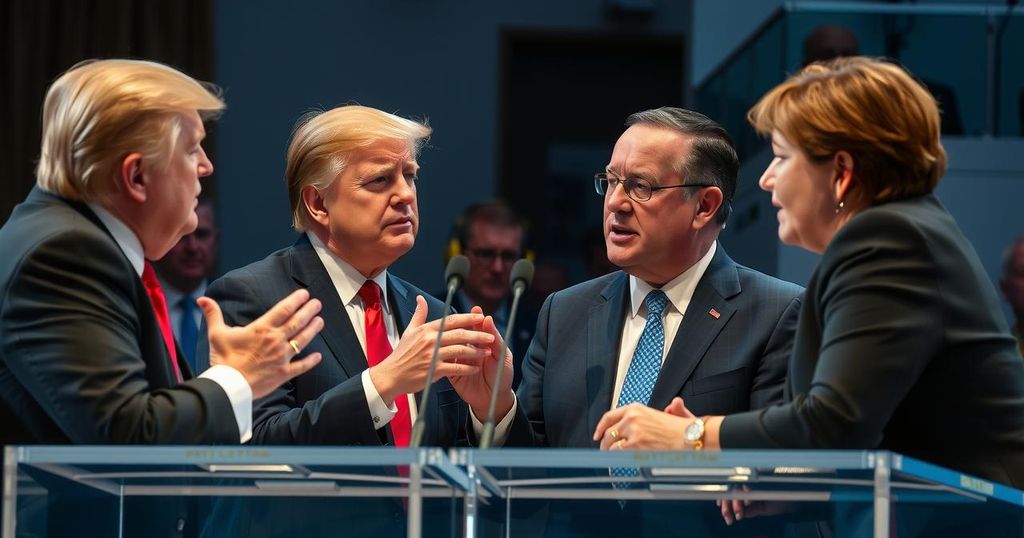Germany is on the brink of early federal elections after Chancellor Scholz lost a vote of confidence amidst a politically charged atmosphere. The nation grapples with an economic crisis and the rise of far-right and far-left parties, challenging traditional political structures. With the threat of a divided European stance, leaders must prioritize unity and constructive dialogue as the country navigates this critical juncture.
In the midst of a political crisis, Germany witnessed a tumultuous debate in the Bundestag, where Chancellor Olaf Scholz clashed with opponents as he called for a vote of confidence, which he ultimately lost. This led to early federal elections set for February 23, 2025, marking an unprecedented phase in German democracy characterized by personal attacks and deteriorating decorum among politicians. Scholz criticized his former coalition partner while opposing leader Friedrich Merz labeled the government a global embarrassment. As the nation grapples with a severe economic crisis exacerbated by high energy costs and industry layoffs, Germany faces a divided political landscape with increasing far-right and far-left influences threatening the traditional party structure.
Amid this backdrop, Merz has pledged to strengthen defense and military spending but faces the challenge of reconciling fiscal responsibility with necessary investments for modernization. With Germany’s traditional leadership position within Europe faltering, the continent teeters on the edge of instability, especially with Trump’s potential return to power in the United States. The shifting dynamics could empower smaller Eastern European states to take charge in defining security policies. Consequently, as Germany prepares for upcoming elections, a unified political front is essential to address pressing national issues, moving beyond character attacks to establish constructive dialogue and governance.
The political discourse in Germany is more fractious than ever, with significant ramifications not only for the country’s democratic framework but also for its longstanding role within Europe. The failures of the current government could prompt widespread disillusionment among voters and may necessitate a coalition that reinforces the need for sincere engagement among political leaders, crucial for navigating this critical phase in German and European politics.
Germany is currently facing a multifaceted crisis shaped by political discord, an economic downturn, and a precarious security environment. Following the war in Ukraine and escalating energy prices, the country’s leadership is under scrutiny, leading to fractious debates reminiscent of a loss of political decorum. With the impending snap elections after Scholz’s coalition failed, the ramifications extend beyond domestic challenges to potential shifts in the European geopolitical landscape.
In summary, Germany is confronting a pivotal moment marked by political upheaval, economic challenges, and external threats. The upcoming elections will not only determine the future course of domestic leadership but will also have lasting effects on Germany’s role in Europe and the global arena. The necessity for collaboration among political factions is paramount, as the nation seeks to stabilize its institutions and respond effectively to the crises at hand.
Original Source: www.theguardian.com






